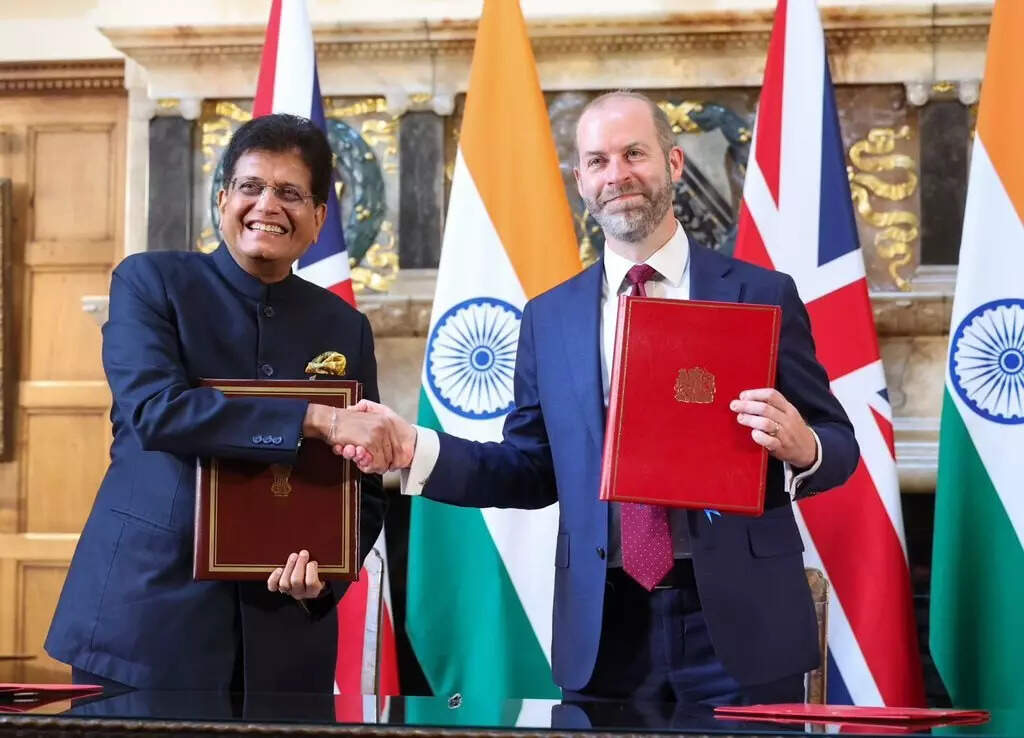
New Delhi: The formal announcement of the Free Trade Agreement (FTA) between India and the UK has brought big cheers for the domestic industry and the country medical device makers applaud the trade pact, that commits smoother market entry and duty free access to Indian exports.
According to the Ministry of Commerce and Industry, the ‘Comprehensive Economic and Trade Agreement’ (CETA) brings “Zero-duty” access to 99 per cent of the exports from India, covering nearly 100 per cent of the trade value.
However, Rajiv Nath, Forum Coordinator, AiMeD noted that, Previously, medical devices imported into the UK were duty-free, so tariff restrictions were not an issue.
For domestic device makers we sought recognition of Indian CDSCO regulatory approval or QCIs voluntary Indian Certification to fast-track regulatory approval address non-tariff measures faced by Indian exporters, Nath added.
As the finer details of the FTA are still under review, industry experts and other stakeholders have yet to comment on the non-tariff (import duty) trade aspects of the agreement.
Currently, India remains heavily reliant on imports to meet its medical device needs, a pattern that is also evident in the current trade dynamics between the two countries.
India’s medical device exports to the UK stood at ₹1,015 crore in 2024, while imports were more than double, reaching ₹2,295 crore — a sharp 36 percent rise from ₹1,682 crore in the previous year, according to AiMeD.
While India has a strong presence in low-risk, high-volume medical devices, the country remains heavily import-dependent for advanced technologies such as MRI machines and CT scanners, etc.
Presently India’s top exports to UK includes contact lens , diagnostic reagents, surgical instruments and PPE kits, whereas imports features Oxygen therapy equipment like ventilators, X-Ray equipment, Diagnostic testing reagents and IVD analysis instruments.
A major factor contributing to India’s import reliance in the medical device sector is the limited domestic manufacturing capability for high-end, technology-intensive equipment.
Commenting on the development, Pavan Choudary, Chairman, of MNC representative body MTaI said, under the agreement import duties on MedTech products will be reduced from approximately 15 per cent to around 3 per cent, significantly lowering costs and improving access to advanced medical technologies,”
“This partnership also opens doors for technology transfers, joint ventures, and skilling – which is a key ingredient for building a resilient healthcare ecosystem for both the countries,” Choudary added.
Fearing potential trade rerouting via third countries, AiMeD has emphasized the need for strict monitoring and verification of Rules of Origin to prevent misuse of the FTA.
“While we welcome UK made medical products into India we emphasized the need for strict monitoring and verification of Rules of Origin to prevent the misuse of the FTA by possibility of routing third-country products through the UK as purportedly UK-made goods,” Nath stated.
Notably, following the conclusion of negotiations in May, Choudary also noted that, “Every FTA, including this one, must require clear disclosure of the actual manufacturing site for all imported products, in line with India’s CDSCO regulations, which mandate separate registration of both the legal and actual manufacturers.”
The disclosure of the actual manufacturing site is a key provision of interest to industry experts, seen as a crucial measure to prevent trans-shipment from undisclosed locations exercised by companies to bypass regulatory scrutiny.